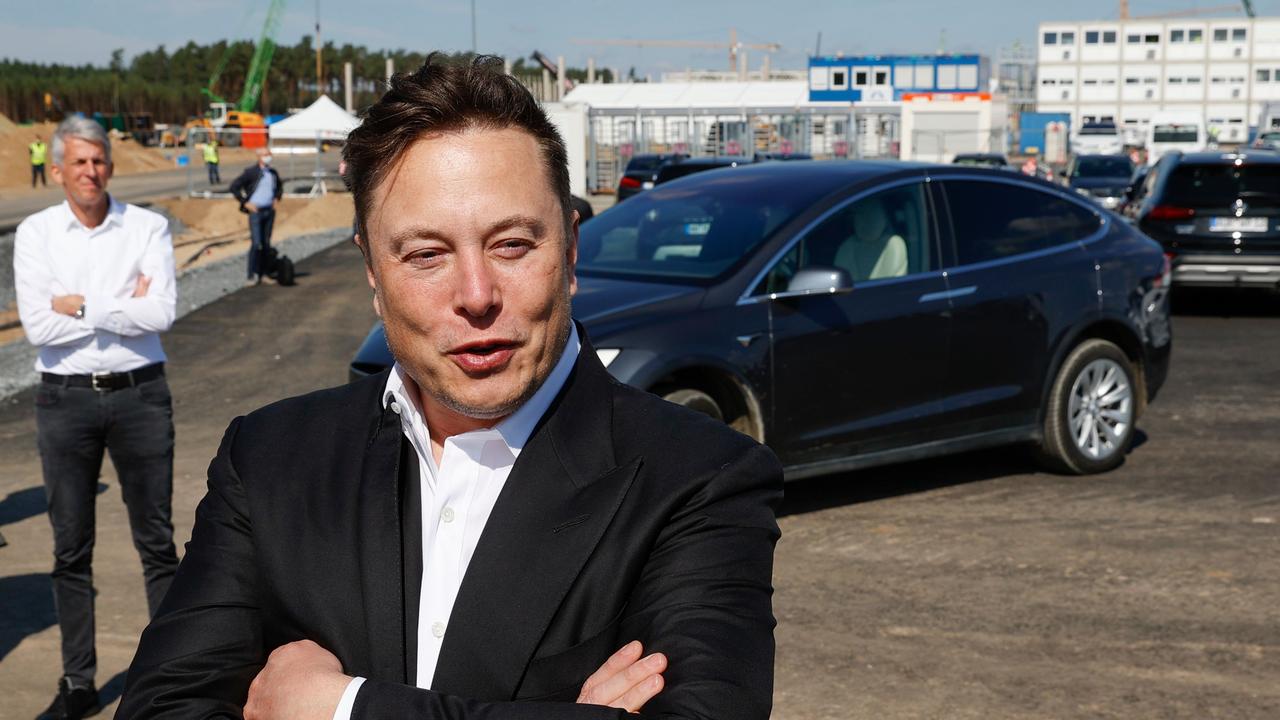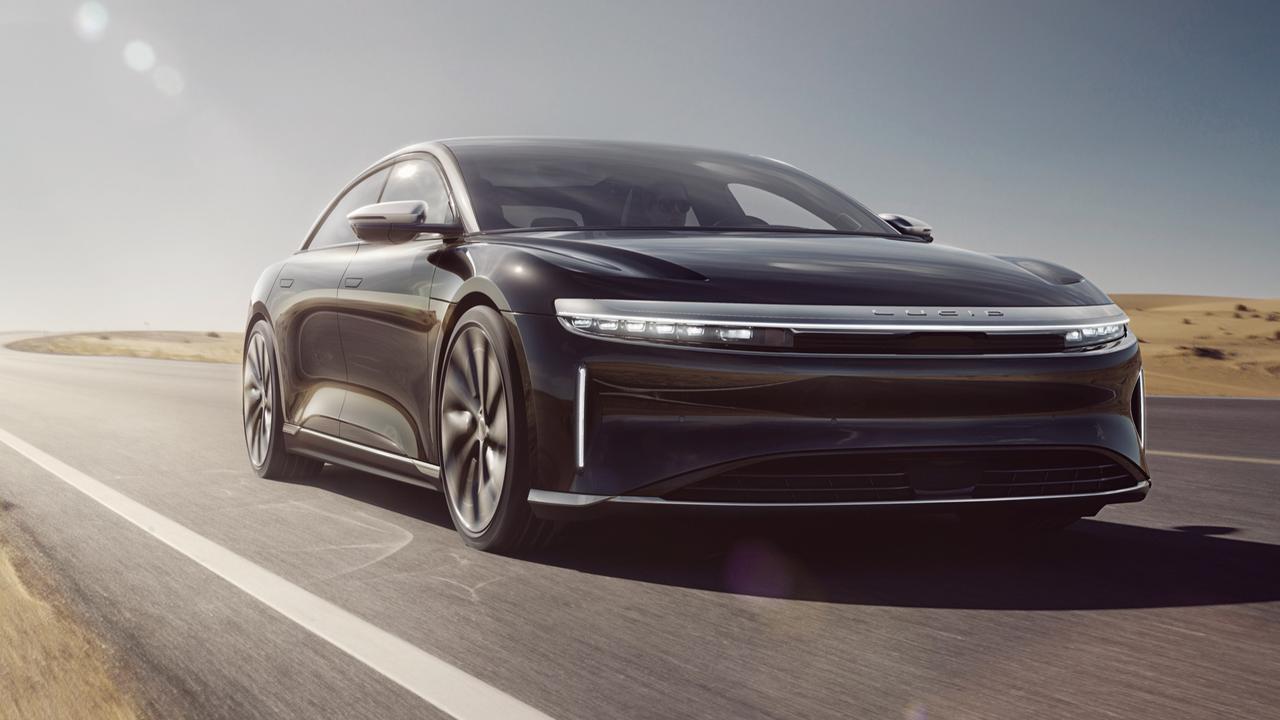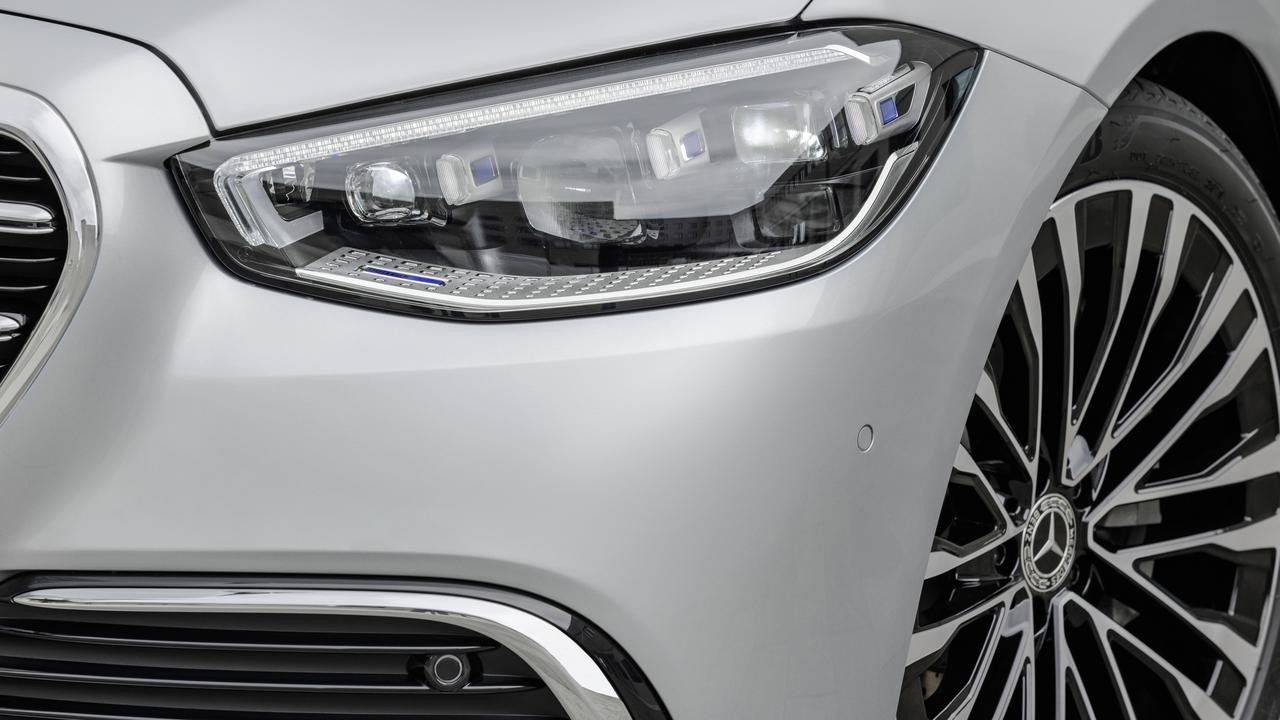UAE chooses electric cars to lead by example
When it hosts the World Expo in three years, Dubai aims to be an eco-leader.
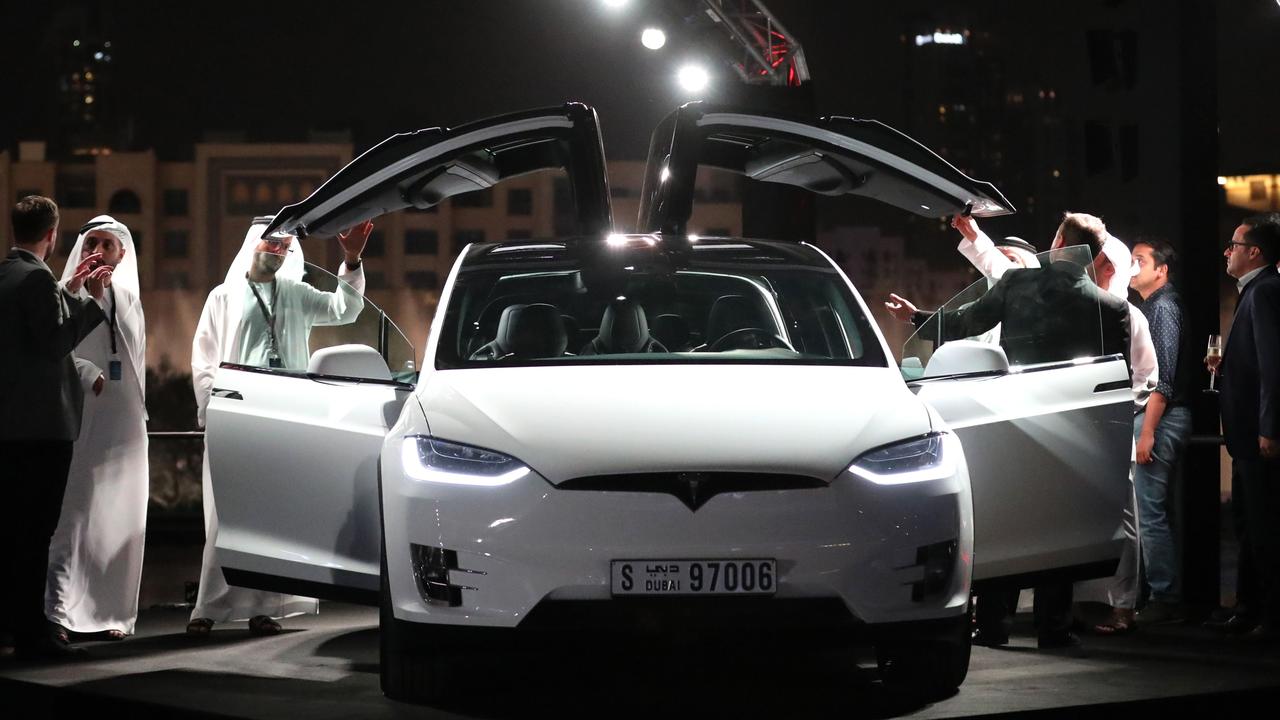
WHAT does it take to persuade a nation of gas-guzzling supercar lovers who enjoy bowser prices at 1980s levels to switch to clean, green driving?
Moving to hybrid and electric vehicles is a fairly easy argument to sustain in Europe, where unleaded prices average $2.20 a litre, and even in Australia at $1.30.
When it’s hovering around 70 cents — and when charging an electric car can be dearer than filling a petrol tank — the green argument is far harder. Yet the United Arab Emirates is attempting exactly that, a switch to electric vehicles.
The formerly oil-rich nation, home to Dubai and Abu Dhabi, deregulated petrol prices in 2015, leaving them to the mercy of the markets and cutting subsidies.
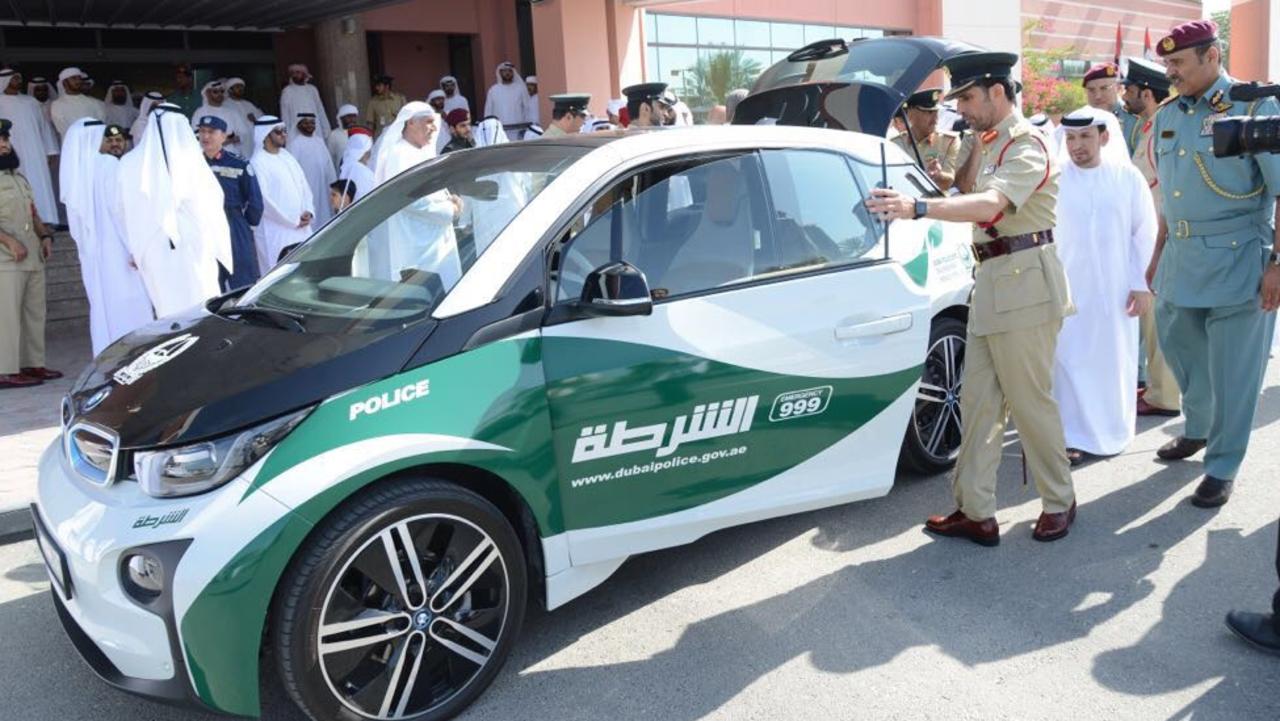
By international standards, prices are still low but deregulation is the thin end of the wedge for a nation in the midst of reinventing itself as a smart, tech-driven, sustainable economy.
In a bid to improve air quality, the UAE plans to cut carbon emissions by 15 per cent by 2020. By the following year, hybrid and electric cars will account for up to 10 per cent of the government vehicle fleet.
Tesla is poised to open its first Dubai service centre, having taken an order for 200 Model S and Model X electric vehicles for the city’s taxi and government fleet. The police department there has commissioned a fleet of BMW i3 electric cars.
The Tesla deal is at the behest of UAE vice-president Sheikh Mohammad Bin Rashid Al Maktoum, who also basks in the title of Ruler of Dubai.
Local roads and transport boss Mattar Al Tayer says authorities plan “to transform Dubai into the world’s smartest city”.
Joining Tesla and BMW, the likes of Volkswagen, Toyota, Renault and Lexus are actively testing zero emission vehicles in the region.
VW did a 12-month trial with 10 Golf GTE plug-in hybrids. There are hydrogen fuel-cell cars on the roads as well — Lexus has two LF-FC prototypes undergoing hot weather testing and Toyota is doing likewise with its Mirai small car.
In Ajman, one of the seven emirates, director general Abdul Rahman Mohammed Al Nuaimi is eyeing the Mirai as a possible replacement for the numerous V8s in the government fleet.
Dubai is one of the few places where charging an electric car is arguably more expensive than fuelling a regular car.
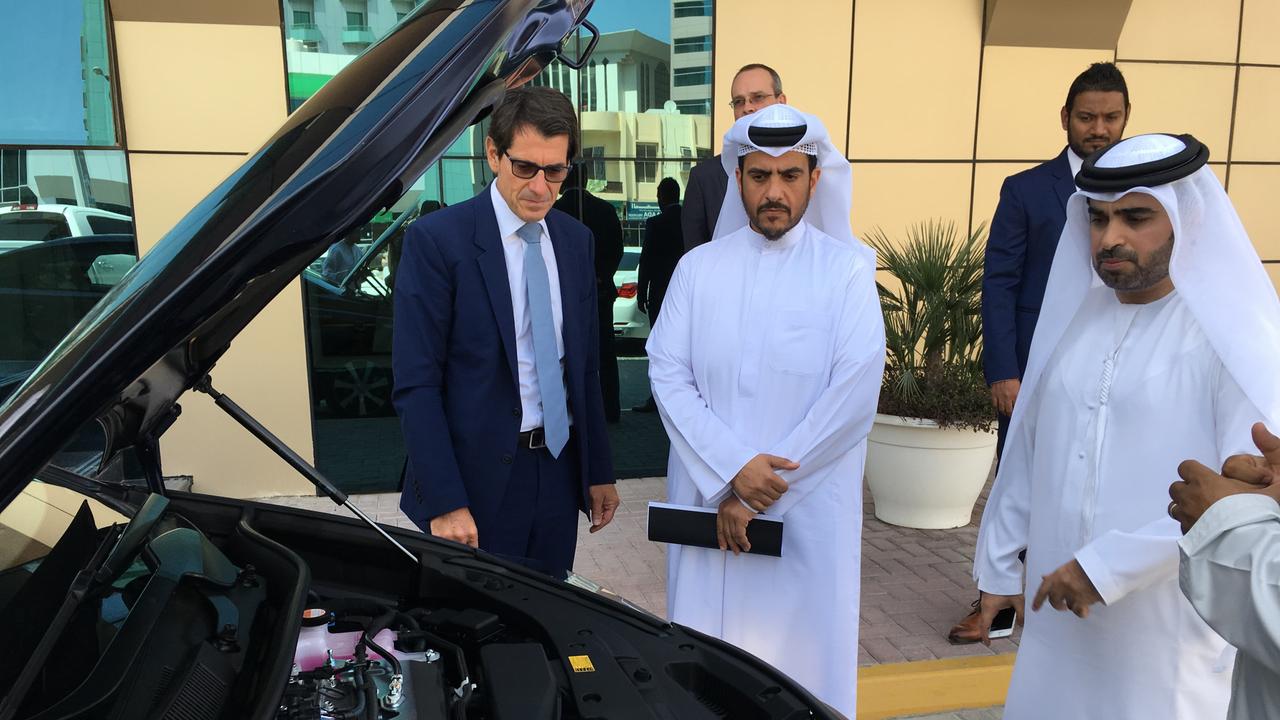
By Middle East standards, the UAE has by far the most expensive petrol — the really cheap fuel is in Saudi Arabia.
Power in the emirates isn’t cheap either, the main supply coming from a hydro-electric plant at Jebel Ali in the south. There is no competitive pricing because there is just one supplier, a government agency.
Big solar farms are being built in the desert. The panels need constant cleaning to remove sand, which dramatically reduces their efficiency.
The UAE mandated the switch to electricity when it became not only the first Arab nation to sign the climate change treaty but also the first oil producing country.
However, given the unfavourable price difference between petrol and electricity, incentives for owners are key to getting more zero emission cars on the road.
The best examples for the UAE to follow come from the least likely place — Norway, 7000km away in Scandinavia and with little in common but the shared aim of green motoring.
In Oslo, the Norwegian capital, incentives for electric cars include exemption from registration fees and road taxes and free charging and parking.
Middle East specialist Akin Adamson of Britain’s Transport Research Laboratory cites numerous challenges to overcome “before we see the mainstream adoption of electric vehicles in the UAE”.
“Electric vehicles are currently too expensive unless supported by government subsidies, so pricing needs to reduce significantly,” he says.
In the first step, the UAE Ministry of Energy unveiled a package of sweeteners including discounted bank loans, insurance plans, attractive EV prices and cheaper registration.
Energy minister Suhail Mohammad Faraj Al Mazroui describes this as the start of “a road map to expedite a 15 per cent reduction by 2020 of carbon emissions”.
It’s also part of a global public relations strategy to promote the UAE as a green nation as Dubai prepares to host the 2020 eco-themed World Expo.
To meet Dubai’s 2020 plan, the energy authorities are rolling out a grid of 100 electric vehicle charging stations.
There will be mid-level stations that charge in two hours, high-level points that take less than 10 minutes and 40 places that will provide free charging for two years.
In three years, when all eyes focus on the Dubai Expo, the UAE intends to be a global leader in sustainable mobility.

